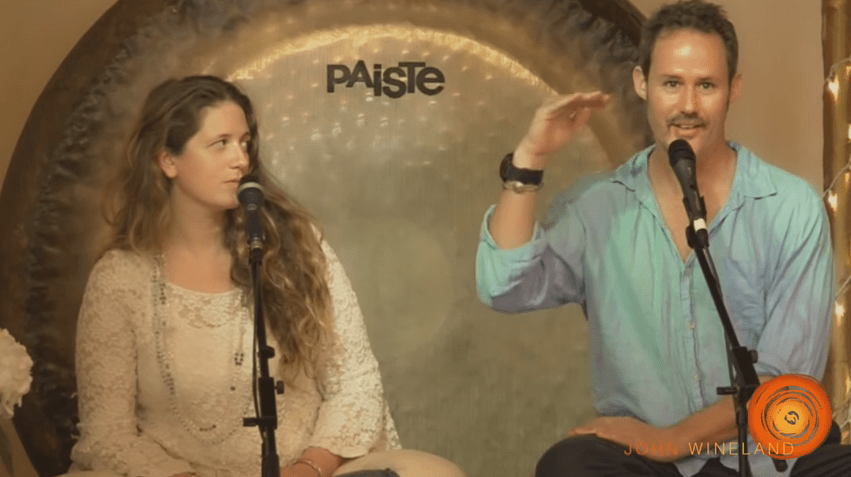Here are just three things you can do that will have an immediate impact on the quality and depth of your relationship…
2016 – a brand new year filled with hope and possibilities. And, resolutions resulting in a rather pronounced uptick in gym memberships, healthy diets, exercise goals and so on. But what about the most important relationship in your life, the one you share with your significant other? It is so interesting that at the beginning of each new year we tend to focus so much on our health and looks, yet you rarely hear about couples resolving to have an even deeper, more fulfilling relationship. I suspect it’s because most don’t know exactly what to “do” to achieve those clearly desirable results.
Well, unlike the exercise and dieting regimes you have to stick to for quite some time before seeing any effects, here are just three things you can do that will have an *immediate* positive impact on the quality and depth of your relationship – sans the sweat and kale…
#1: Change Your Context
How many times have you heard the expression: “She broke my heart!” or something similar? As if the heart can actually be “broken” –think about that for a moment. This is simply a context or belief system that only serves to put fear of abandonment and rejection into the best of relationships. And when you avoid a fear, you are much more likely to experience its manifestation and all the drama that comes with it.
|
The great thing about contexts is that *none* of them are true. They are merely a lens in which we see our world.
|
For 2016 consider another, much more empowering context where it is our ego that is fearful of being hurt or broken. And our Heart, as our true essence, can never be hurt or broken, is never needy and loves unconditionally. Within this context your only concern is a trashed ego, rather than the complete decimation of your very soul.
The great thing about contexts is that *none* of them are true. They are merely a lens in which we see our world. However, some contexts are inherently much more empowering than others. Not too long ago I had a 30-something female friend ask me for relationship advice and the conversation went something like this:
HER: “I’m afraid to tell my boyfriend how I really feel about him. What should I do?”
ME: “What are you afraid might happen?”
HER: “What if he doesn’t feel the same way?”
ME: “What would happen if he didn’t?”
HER: “I’m afraid it might break my heart.”
ME: “If your boyfriend doesn’t feel the same way, what would end up being hurt and devastated – your Heart… or your ego?”
HER: “Huh?”
ME: “What if the true essence of who you are, your Heart, cannot be hurt or broken? What if it is your ego that experiences all the pain and suffering? Within this context, the worst that could happen is that he trashes your ego, but he cannot, in any way, hurt your Heart? The next time you experience hurt or pain in your relationship imagine your Heart watching it serenely from a distance as a slow-motion train wreck that mangles your ego. If you did that, how would you feel?”
HER: “That does take away much of the fear.” she responded.
The next day she called me to say that shift in context made all the difference in the world as she was now able to be vulnerable with him without the fear of devastating pain.
Remember, a context is simply a world view –one that can be adopted *instantly* if you choose. And in so doing with an empowering one, remove much of the fear of loss and drama from your relationship.
#2: Communicate Authentically
Not too long ago I was interviewed on the radio by a female host who happened to be a relationship coach. While waiting to go live we chatted for a bit where she shared how she just entered into a new relationship and started to experience regular orgasms with her new love –something she rarely, if ever had with her previous relationships.
Once we were on the air for a while I decided to turn the interview tables around. So I asked her the following question: “What would happen if you shared with your partner what you really wanted from him in the bedroom?”
And this is where it got interesting. The initial dead-air was palpable as she struggled with her own visceral reaction to that possibility. She then blurted out: “Oh my God! That put me right back into the ‘cave’ with the ‘kids’ thinking he would be so hurt or angry that he may leave us!” Talk about genetic imprinting. Essentially, she was terrified of abandonment if she risked really sharing what worked for her sexually speaking.
And, she’s not along. A British University study shows that about 87% of women vocalize (i.e. “moan”) during intercourse primarily to: a) hurry their man up so he just gets it over with sooner rather than later, and b) to boost his self-esteem.
The problem is that when either party is not being fully authentic in expressing their feelings and desires it will inevitably lead to diminished fulfillment or even breakup.
Ladies, men aren’t mind readers. And when they get hard, their brain stops functioning as all the blood goes to their penis. From their perspective (thanks to porn), hard pounding is what you want and any false encouragement from you will not help matters.
|
Ladies, men aren’t mind readers. And when they get hard, their brain stops functioning as all the blood goes to their penis.
|
So for this new year resolve to be authentic with your man about what really works for you (and if necessary, what doesn’t). Of course this goes for men too, however I find that if a man pleases his woman in the way she wants, that becomes his ultimate sensual reward.
Now here’s a tip on how to position this to your man so he doesn’t feel like a loser in bed. You might consider saying something like this (you may want to include subtle batting of eyelashes, a purr in your voice and a smile that melts his heart):
“Sweetheart, I cannot begin to tell you how much I love you and our lovemaking. And I’ve been thinking, how would you like to explore some other ways of pleasing each other that may take us to whole new places?”
Trust me on this one, his eyes will glaze over and his tongue will be hanging out like a happy puppy dog before you even finish the last word. Then be ready to gently coach him so you both experience new heights of pleasure and fulfillment that neither of you ever thought possible.
#3: Insist on Presence Over Performance
Put a sign on your bedroom door that says “Presence”. For 2016 resolve to remove the word “performance” from your lexicon and replace it with “Presence”. Presence is simply being in the moment with full attention, no distractions, goals or agendas. Presence automatically creates a space where you both can fully flourish and share a profoundly deep, fulfilling experience with each other without the stress of trying to “perform”. Both men and women experience sexual performance anxiety, insisting on Presence instantly eliminates it for both.
Establishing Presence in the bedroom is really not that hard and here’s what my partner and I do almost every time we make love. First, you schedule a time when there will be *no* distractions whatsoever for at least an hour or so. You might want to start out by taking a shower together and gently scrubbing each other down (I recommend ladies receive first), but avoid overt sexual contact. Then you might consider giving each other a massage in the areas each of you indicate will relieve most of the stress of the day – again, avoid overt sexual stimulation.
Once you are both fully “warmed up” (especially important for the woman), the man starts to please his woman in the way she wants while holding off his own sexual release. Remember, there are no goals or agendas here –so even if she doesn’t (or chooses not to) experience a climax, respect that and take great pleasure in giving to her selflessly. Then, she will be likely ready to enthusiastically reciprocate in the way you want.
This kind of Presence-based lovemaking can last literally for hours and leave you both more energized when done than when you started.
Instant Rewards
The problem with most resolutions is that they typically take a great deal of effort and time before you realize any noticeable benefits –which is the primary reason why so many give up after only a month or two.
Not so with the ones I shared above. Each one by itself will provide an immediate positive shift in your relationship experience which only reinforces the habit. Do all three and 2016 will be the year that your relationship transformed into one beyond your most cherished dreams.
And that makes for a very Happy New Year…
Curated by Erbe
Original Article








